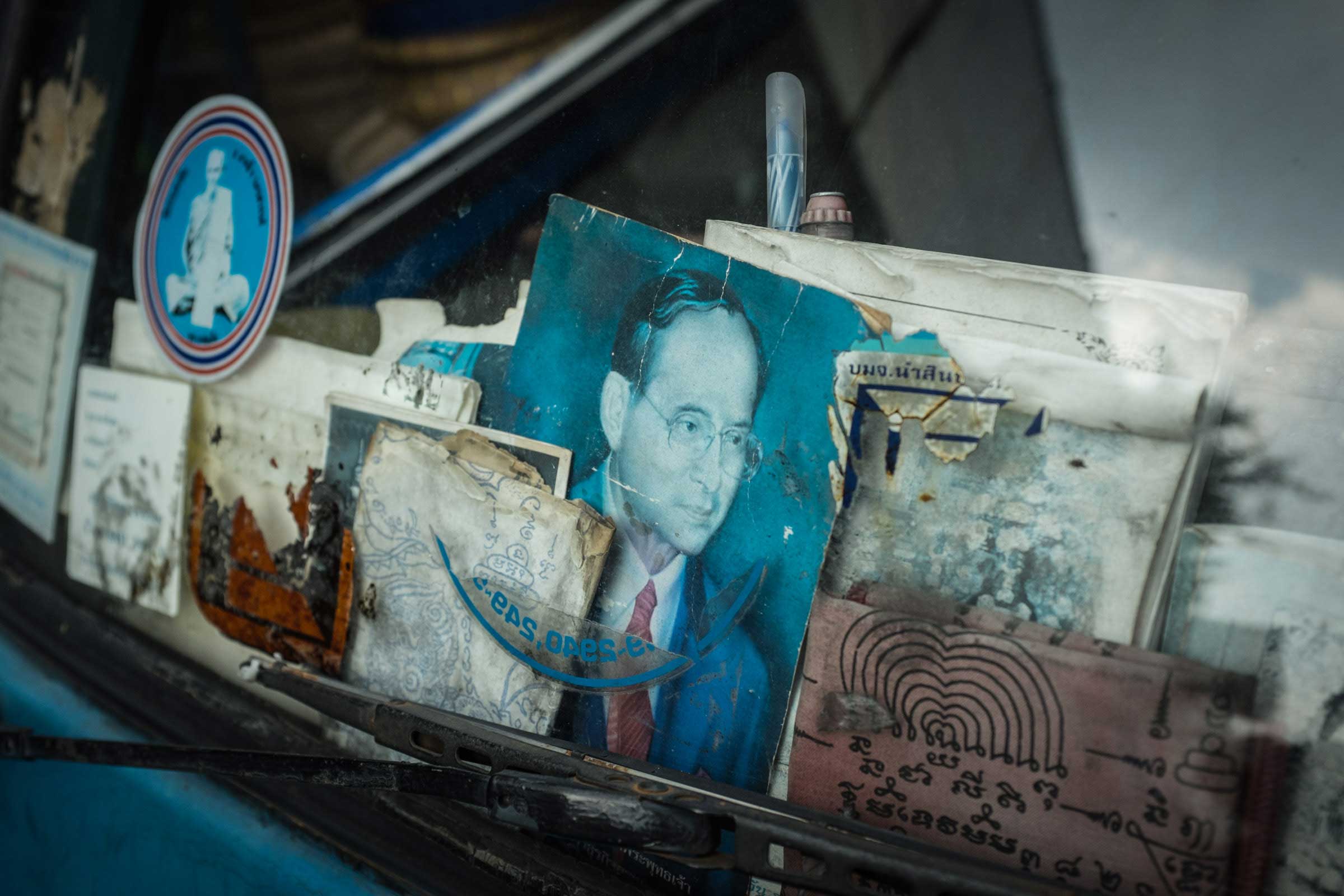
In 2002, Thailand’s King Bhumibol Adulyadej published a book about his favorite dog, Tongdaeng, a name which means “copper” in reference to the color of his coat. The first 100,000 copies sold out within hours and multiple reprints were ordered. Even so, copies became so rare that the tome, complete with intimate portraits of sovereign and pet, became a much-coveted gift.
Such is the adulation lavished upon King Bhumibol, currently the world’s longest-reigning monarch, having spent 69 years on the throne. Travel across the Southeast Asian nation and his portrait is a constant refrain, adorning every shop, office and home. Cinemas replay scenes from his life and work before every movie. School textbooks lionize his decades of service and moral fortitude.
Bhumibol is very much grand patriarch for Thailand’s 70 million people — his birthday, Dec. 5, is celebrated as Father’s Day — and he also revered as a unifying figure in a society wracked by bitter social and political divisions. The only monarch ever born in the U.S., he was officially crowned in 1950, four years after the tragic death of his elder brother, King Ananda.
Bhumibol dedicated himself to improving the lives of his subjects in even the most far-flung reaches of his kingdom. He launched engineering projects and took a keen interest in agriculture, especially amongst the impoverished northern hilltribes. In his spare time, he played jazz, painted and sailed in the Thai Gulf. Thais eagerly devoured accounts of his exploits in newspapers and royal magazines.
Yet there is a dark side to this veneration. Thailand’s royal defamation laws, known as lese-majeste, are considered among the world’s strictest, with punishments of up to 15 years in jail for insulting the monarch or heir. Charges can be brought by any individual and far from protecting Bhumibol’s reputation — the king insisted in his 2005 birthday speech that, “I must also be criticized” — they are used as a political tool and to settle vendettas.
Bhumibol’s health problems may have hampered his ability to combat this disturbing trend, which has worsened since the nation’s most recent military coup of May 22, 2014. He has been in and out of hospital for several years, most recently for a blood infection. Last month, his youngest daughter honored him with a Buddhist rite normally reserved for the terminally ill.
Although Bhumibol’s reign may be approaching its twilight, his visibility throughout the nation shows no sign of dimming. Thais will be hoping to get a glimpse of their ailing king on his approaching birthday, when tens of thousands will don yellow — his birthday color owing to having been born on a Monday — and congregate on the streets of Bangkok, holding aloft portraits of the man considered father to them all.
Jen Tse is a photographer, photo editor and contributor to TIME LightBox. Follow her on Twitter @jentse and Instagram.
Charlie Campbell is Associate Editor for TIME, focusing on Southeast Asia. Follow him on Twitter @charliecamp6ell.
Mikko Takkunen, who edited this photo essay, is the International Photo Editor at TIME.com. Follow him on Twitter @photojournalism.
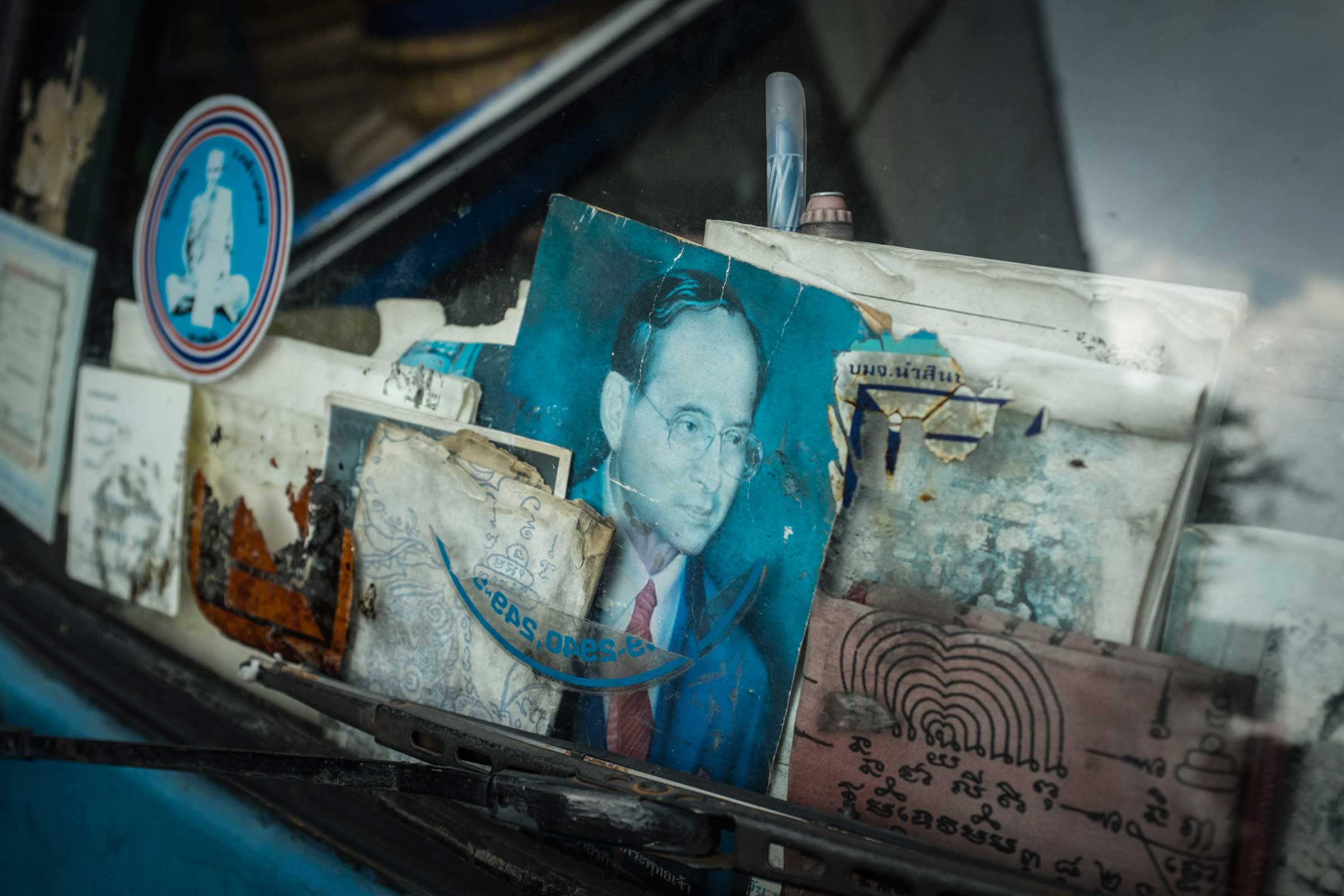
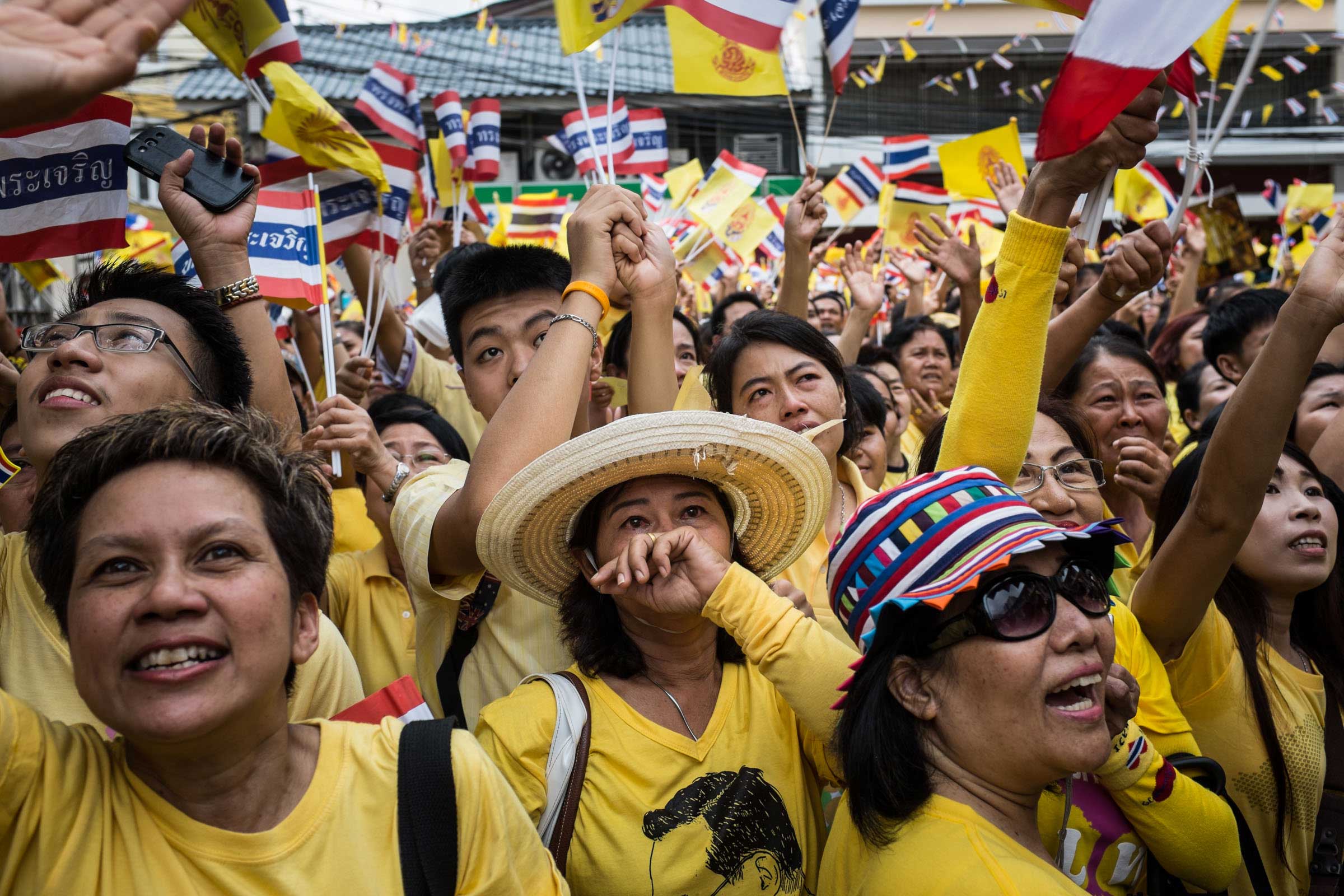
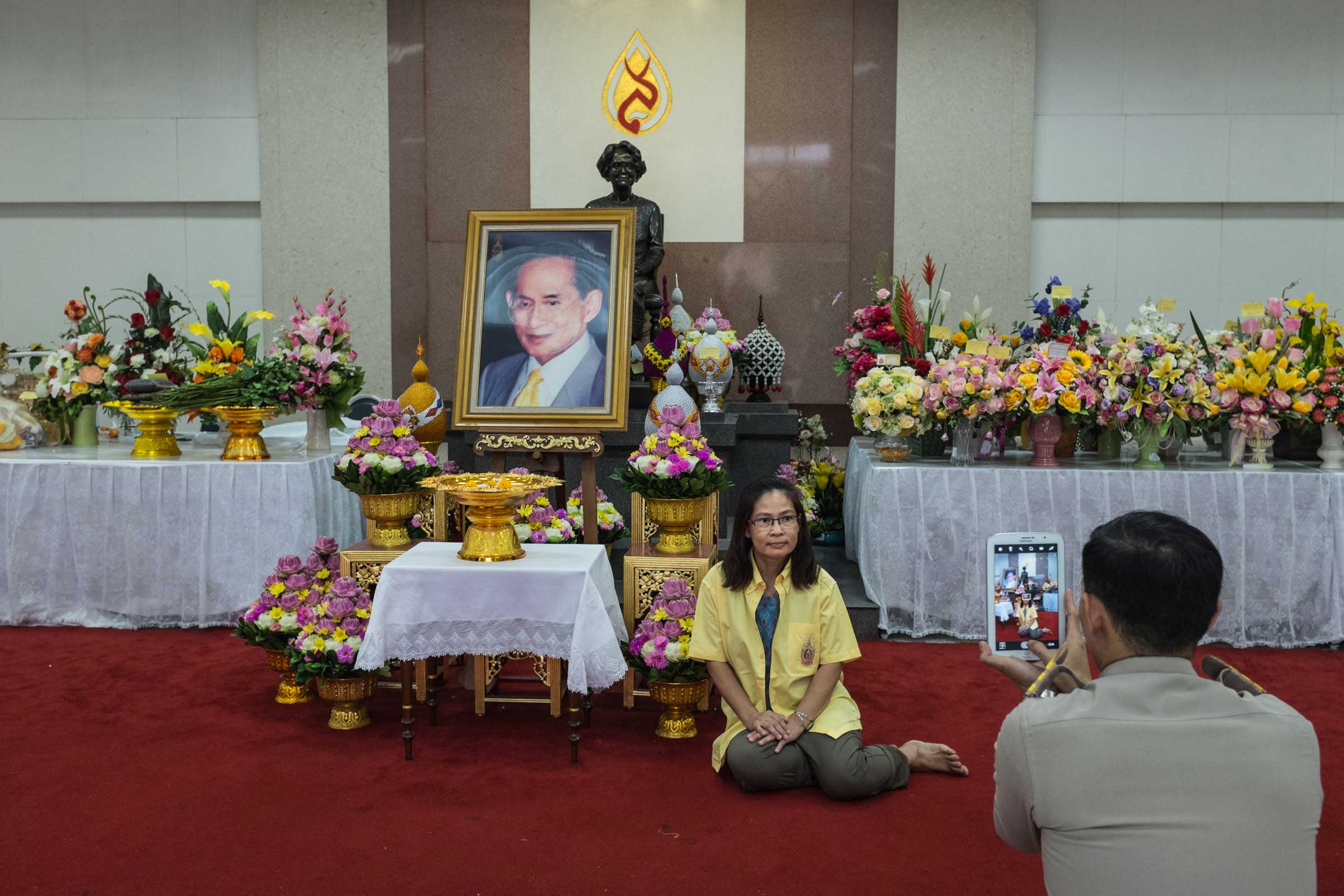
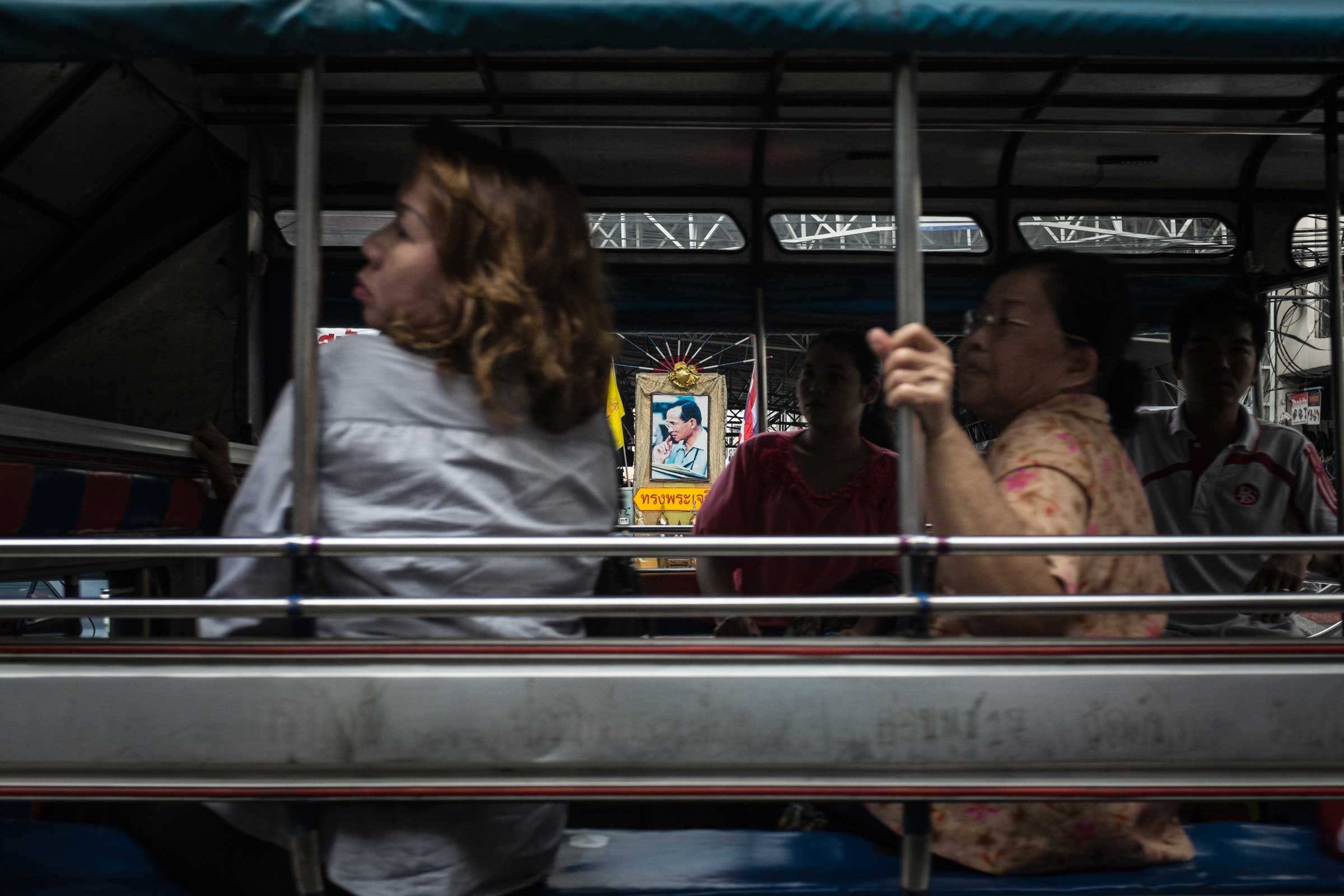
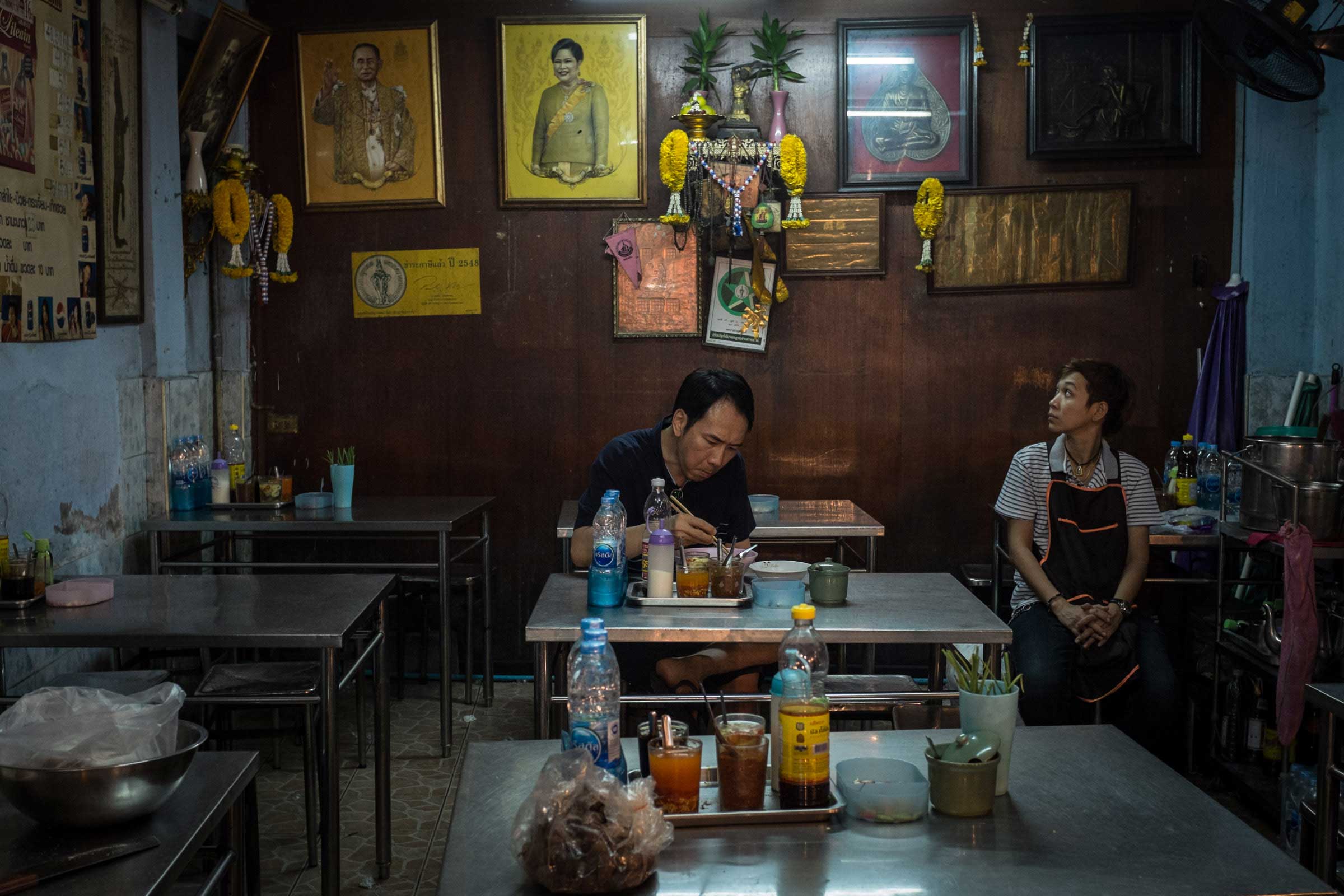
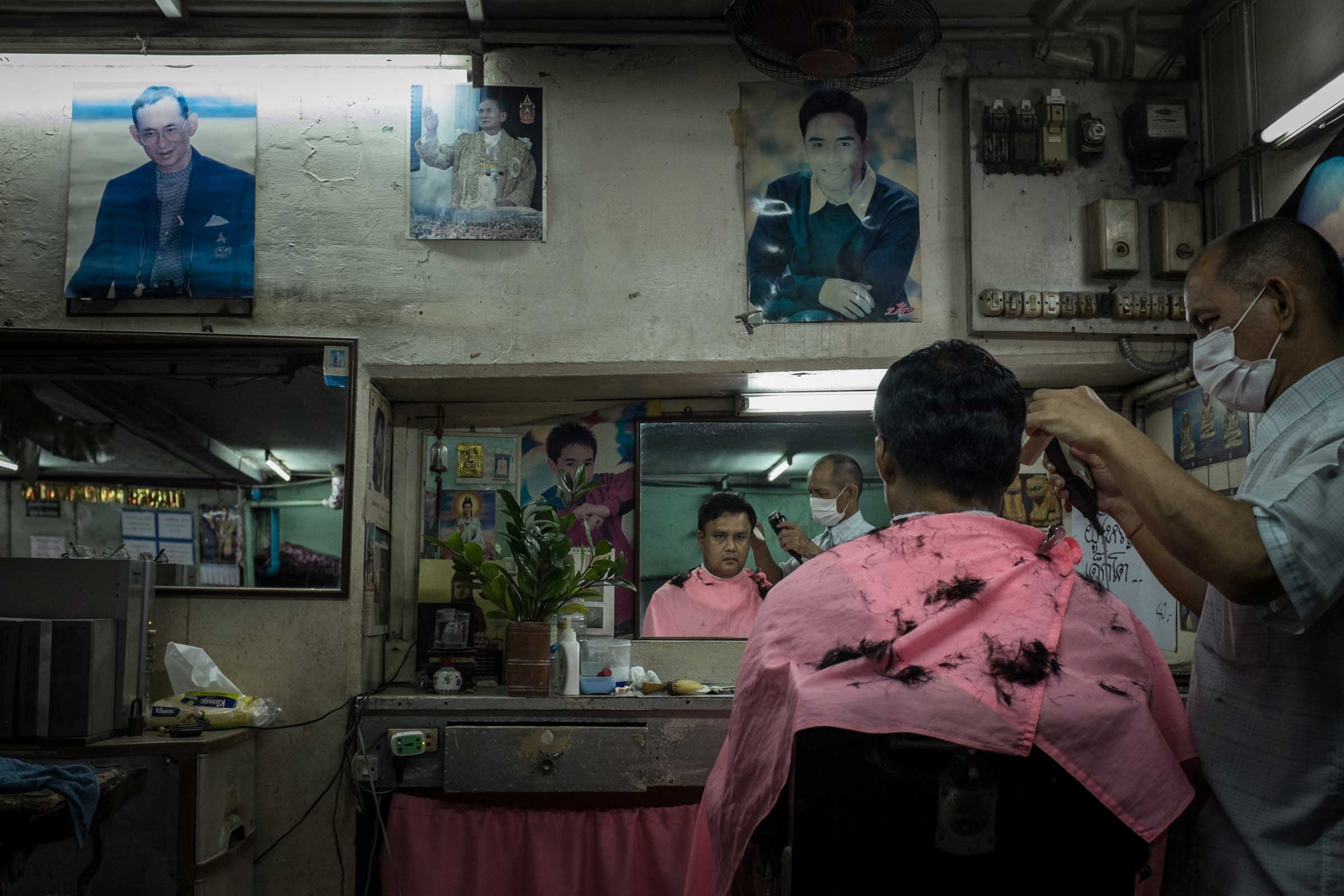
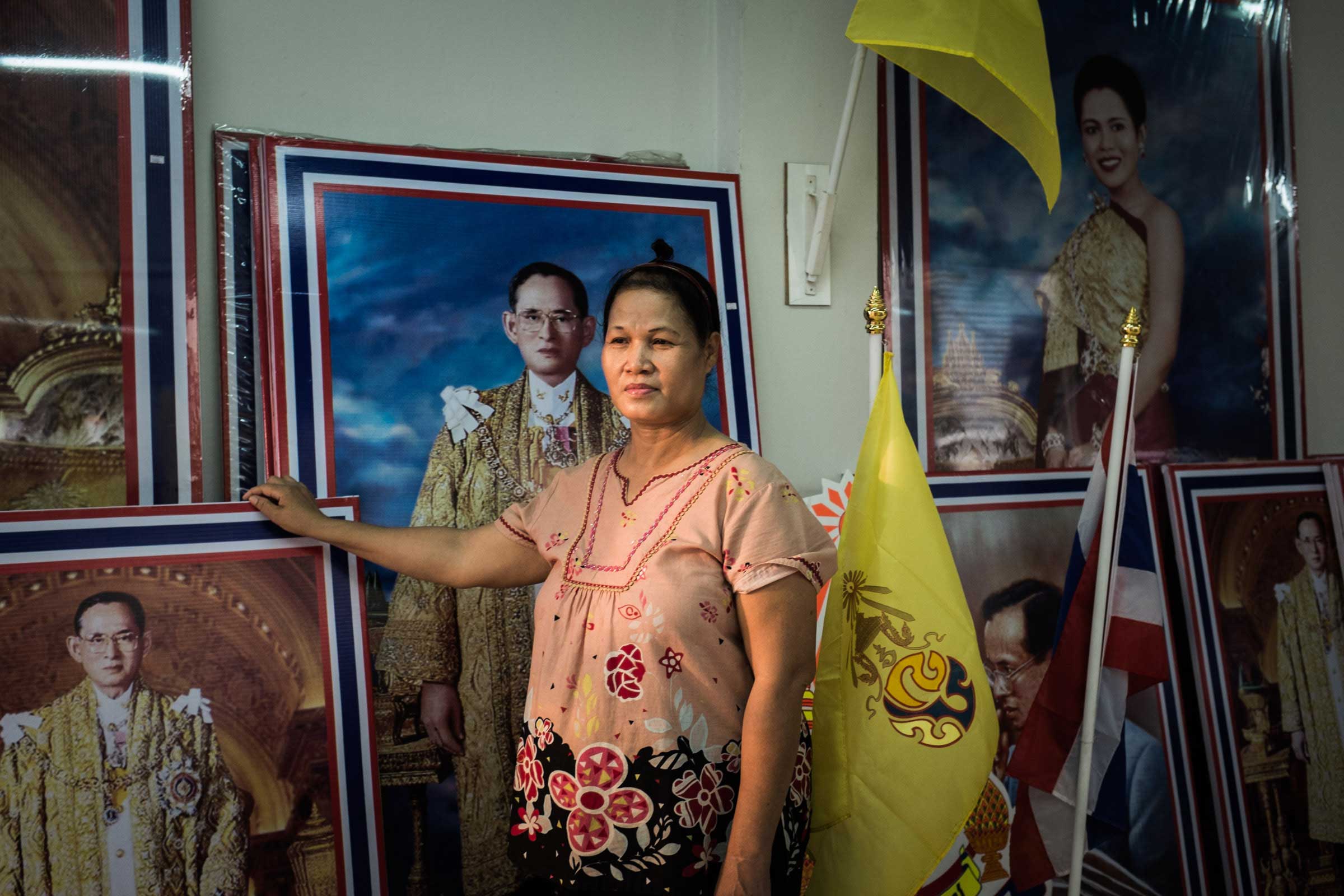
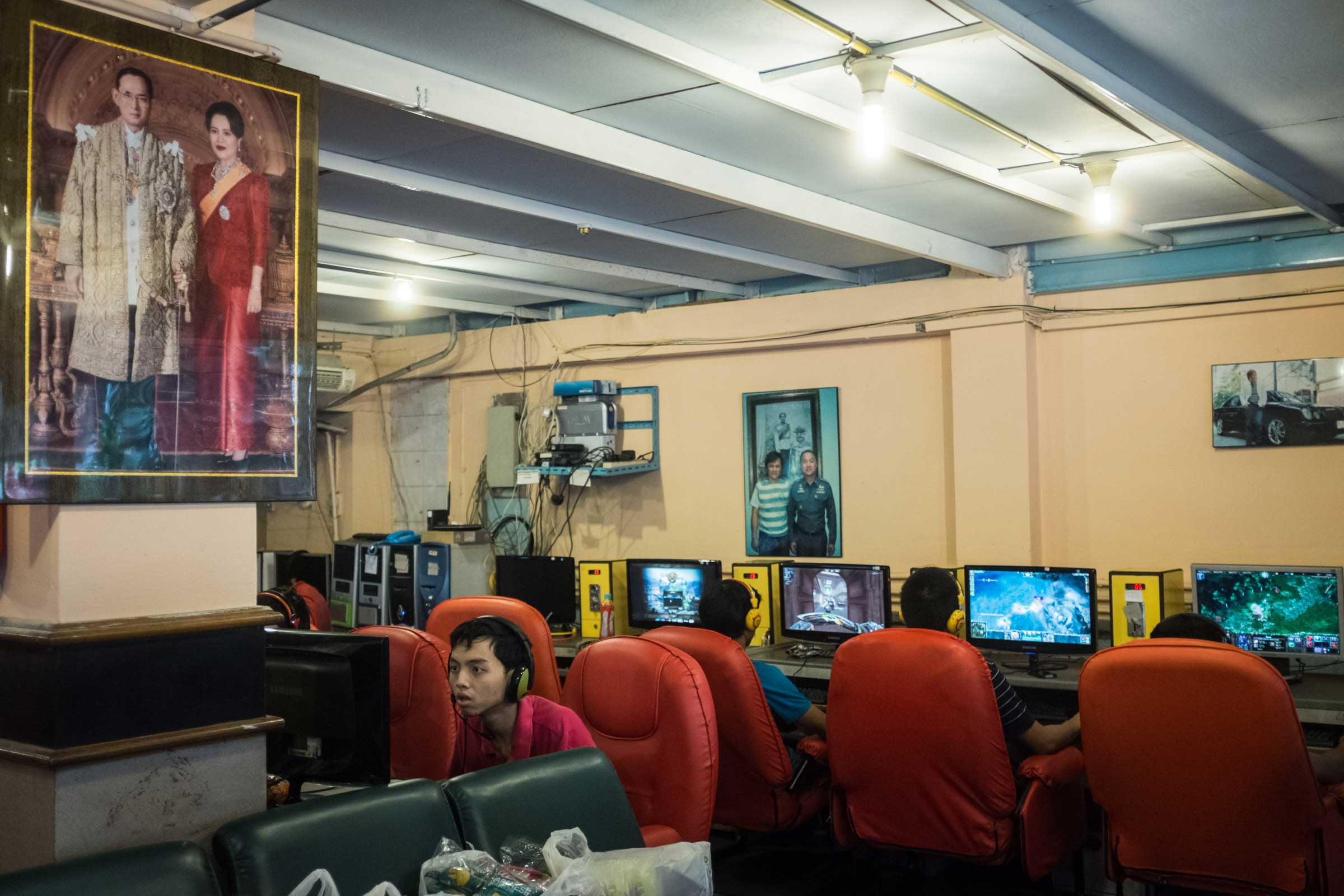
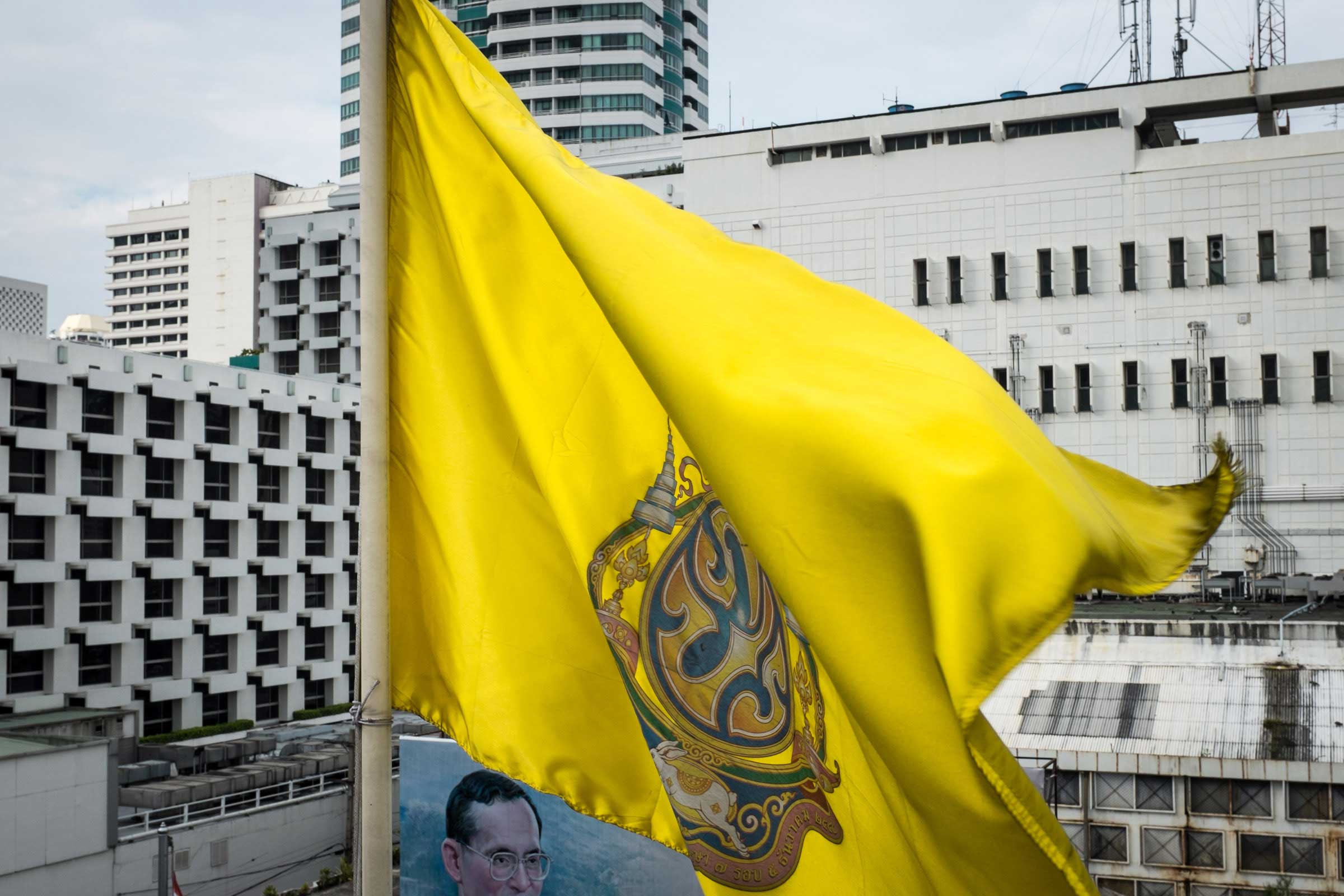
More Must-Reads from TIME
- Cybersecurity Experts Are Sounding the Alarm on DOGE
- Meet the 2025 Women of the Year
- The Harsh Truth About Disability Inclusion
- Why Do More Young Adults Have Cancer?
- Colman Domingo Leads With Radical Love
- How to Get Better at Doing Things Alone
- Michelle Zauner Stares Down the Darkness
Write to Charlie Campbell at charlie.campbell@time.com